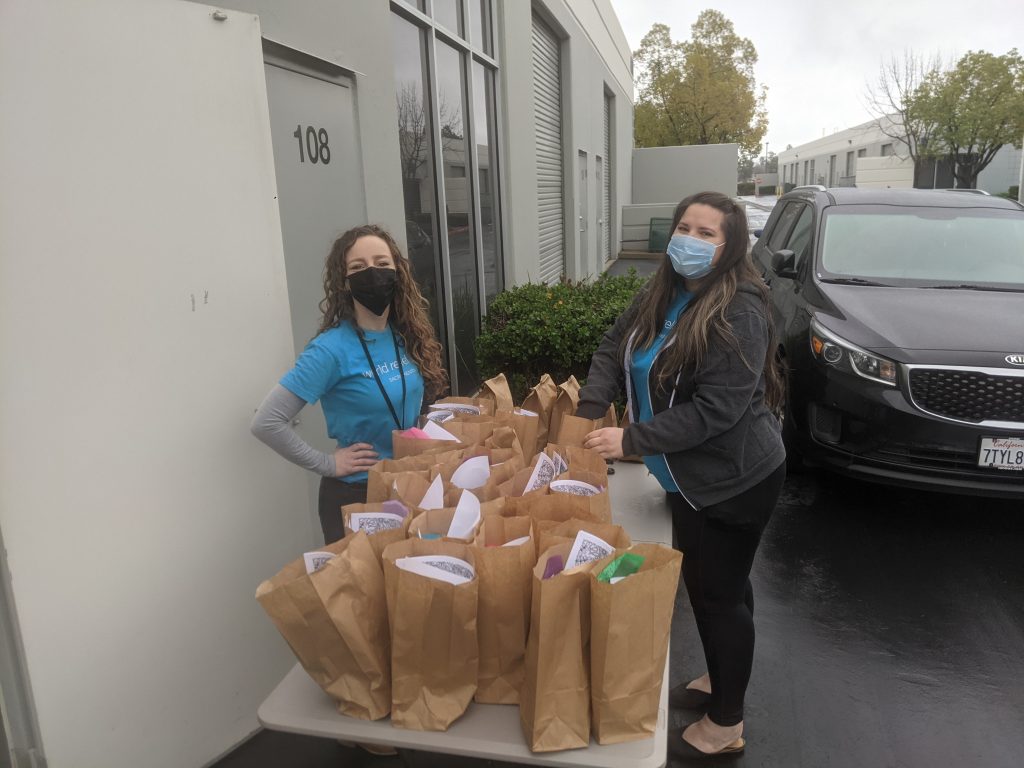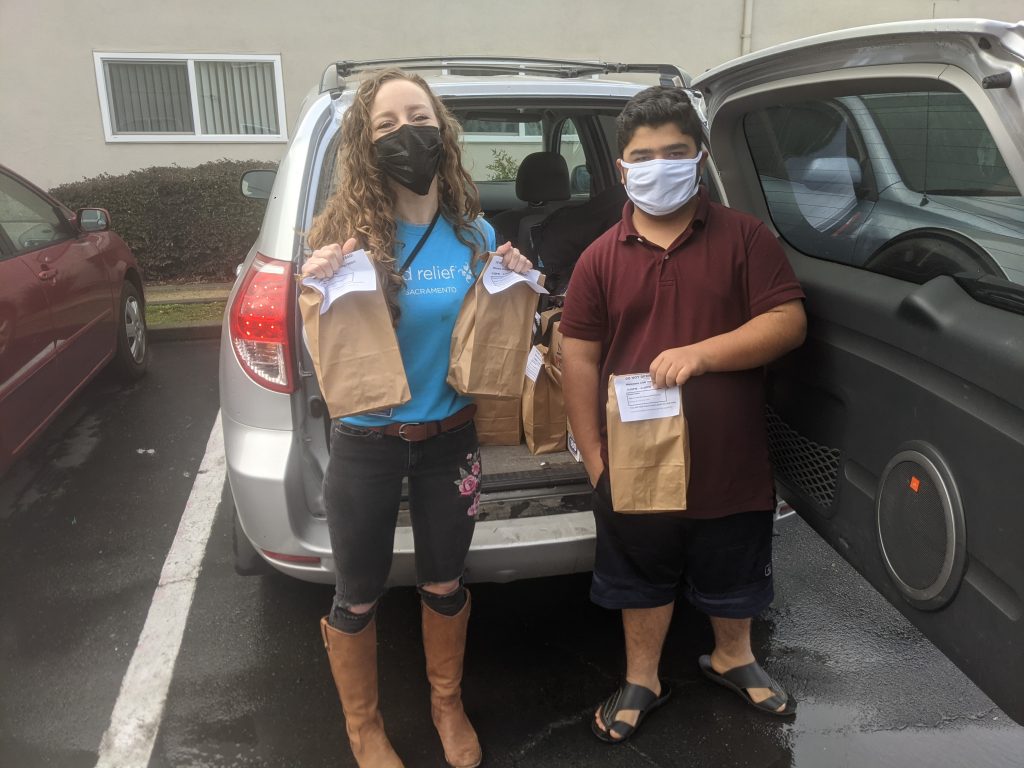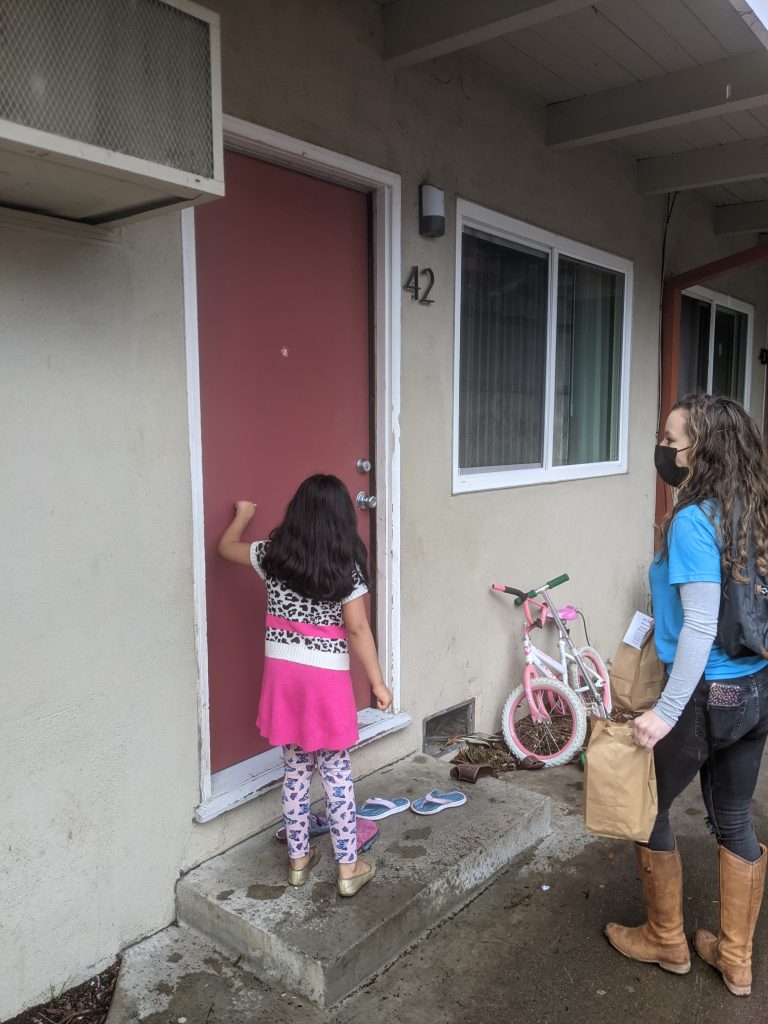Posts by vhamra
Sacramento Region To Host Thousands Of Afghan Refugees
BY JENSEN RADER
The U.S. continues to welcome waves of Afghan refugees and a large percentage of them are settling into the Sacramento region.
Learn what you can do to help Afghan refugees in Sacramento >>
The Afghan Immigration Crisis Is Bigger, Faster, More Traumatic. Are Ministries Ready?
BY STEFANI MCDADE
One of World Relief’s focuses is on dealing with the trauma incoming Afghans will face upon their escape from Afghanistan and entrance to America. Because of these accelerated immigration processes, their experiences in their home country will be much fresher than for Afghans resettled in previous years.
“I can tell you there is a significant amount of mental health needs. The refugee process is born out of trauma always,” said Kerry Ham, the local director for World Relief Sacramento. But for Afghans “this is very acute, and it’s a lot of people at one time”—so “much of the funding we’re looking at for the next year is developing those pathways to help have thriving, integrated, brand-new Americans.”
World Relief Sacramento has enlisted Afghan counselors from the community to come alongside newly arrived Afghan individuals in the process. Many evacuees suffer from survivor’s guilt in leaving behind loved ones who are now facing the risk of being targeted and killed by the Taliban.
The primary factor when it comes to dealing with mental health issues is being aware of and sensitive to the religious background of Afghans, who are coming from a country that is over 99 percent Muslim.
See the full story on Christianity Today.
Learn what you can do to help Afghan refugees in Sacramento >>
Over 50,000 Afghan evacuees expected to resettle in U.S., says DHS Secretary Alejandro Mayorkas
BY NICOLE SGANGA, BO ERICKSON, ELEANOR WATSON, ED O’KEEFE
Refugee and immigration advocates have been pushing the White House to provide mental health counseling and culturally sensitive services to Afghan evacuees. Mayorkas said Friday he’s met with dozens of non-profit and community organizations, and vowed to provide “cultural competency, access to counsel, trauma counseling and pastoral care” to at-risk Afghans arriving in the U.S.
See the full story on CBS Mornings.
Learn what you can do to help Afghan refugees in Sacramento >>
Afghan families are being rapidly resettled in the US. But adjusting to their new lives will take years
BY MONICA CAMPBELL
Among the groups spearheading efforts to support Afghan refugees once they land in the US are refugee resettlement agencies and Afghan American groups.
“Our mission is to get you somewhere to live, get you enrolled in a jobs program, and get your first couple of months’ rent and utilities paid,” said Vanassa Hamra, with World Relief Sacramento, part of a larger refugee resettlement agency.
That is often the path for many refugees resettled in the US: They receive federal help with housing, enrolling kids in school and finding work. Those benefits can run out, however, within a year, so having affordable rent is critical once refugees are on their own.
See the full story on The World.
Learn what you can do to help Afghan refugees in Sacramento >>
For many Afghan refugees, the struggles don’t end when they reach U.S. soil
BY ANITA CHABRIA, SARAH PARVINI
Here in Arden Arcade, a Sacramento neighborhood known for low rents in run-down apartments, Afghan refugees stressed that the United States’ obligations to help those who furthered the U.S. mission should not end when migrants land on American soil — as many felt it had for them.
From there begins a long journey often filled with hardship, from the red tape of receiving a Social Security number, signing up for social services and finding housing, to the disillusionment for many educated professionals of suddenly finding themselves at the bottom of the economic and social ladder, isolated by language and culture and often surrounded by crime, prejudice and need.
Even before the current crisis, some felt abandoned by a government that they believe delivered less than expected.
Here’s how you can help Afghan refugees in Sacramento
BY MIKE DUFFY
SACRAMENTO, Calif. — Americans are more concerned than ever about what will become of Afghans fleeing their country. In truth, many could end up in the Sacramento area. It’s one of the most popular locations for Afghan immigrants.
Kerry Ham is the director of World Relief Sacramento. It is an organization that works with the government to settle refugees. He knows firsthand why many Afghans choose Sacramento.
“In resettlement, people go where their community is. And as many people know, one out of every nine Afghans in the United States come to the general Sacramento area,” Ham explained.
Learn what you can do to help Afghan refugees in Sacramento >>
Local Afghan Families Worry For Loved Ones Back Home: ‘I Don’t Know If He Is Alive Right Now’
BY VELENA JONES
“Not only do they need to flee somewhere to be safe, but they need to rebuild their life and you just don’t do that overnight. So, it’s so vital our services to secure them housing, to help cover the first couple months of rent, expenses, get them groceries, get them navigating our medical system, get them in school,” explained Vanassa Hamra, spokesperson for World Relief Sacramento.
Since 2016, World Relief Sacramento has resettled 2,327 families. Their Modesto branch has resettled 1,426 in the same time frame. The Sacramento branch was looking to bring even more people to the area when violence erupted.
“We had 17 flights scheduled to arrive two days before August 16 when the government fell. That represents 84 individuals that are in limbo that should be here,” Hamra explained.
See the full story on CBS Sacramento.
Learn what you can do to help Afghan refugees in Sacramento >>
How it Started, How it’s Growing: World Relief Sacramento’s Welcome Club
In 2018, World Relief Sacramento volunteers Becca and Luke Voight began connecting with refugee youth at a local park. What started as an informal gathering has now grown into a robust program called The Welcome Club.
The Welcome Club partners with four area elementary schools to serve upwards of 100 students. Itoffers space for immigrant kids to ‘just be kids’. For many of these youth, schoolwork is difficult, and their guardians cannot give the same homework support that their American classmates receive. They are often translators for their parents and caretakers for younger siblings. Even if it’s just for an hour a week, The Welcome Club is where they can have fun with friends and coaches.
Like most of our U.S. programs, The Welcome Club had to make some big adjustments in 2020, moving all of its in-person programming online. I recently spent the day with WR Sacramento’s Children and Youth Manager, Makayla Synak, and got a first-hand look at the magic that happens at The Welcome Club, even in its virtual form. Follow along to learn more and find out how you can create communities of welcome for immigrants in the United States.
9:00 a.m.
Coach Makayla checks her car to make sure she has everything. Her trunk is full of children’s books, binders with waivers and forms, disposable face masks, hand sanitizer and craft supplies. Coffee cup in hand, World Relief blue t-shirt on, she leaves for the World Relief Sacramento office, which has been closed to clients since March of 2020.
9:30 a.m.
Makayla meets Coach Becca in the classroom at the back of the office. Becca, also masked and sporting her World Relief t-shirt, is adding printouts of song lyrics to 60 lunch bags on the floor. Every other Friday, Makayla, Becca and a small group of staff and volunteers take 60+ goodie bags to 12 apartment complexes for children and youth to unpack at their virtual Welcome Club that week.

The bags are packed with goldfish crackers, contact paper and a booklet with the week’s Welcome Club theme: “Asking for Help and Giving Help.” Once filled, the bags are stapled shut with a note that says: DON’T OPEN UNTIL WELCOME CLUB. Becca and Makayla joke that most kids open their bags before club, but it’s worth a shot!
11:00 a.m.
Makayla takes a break from prepping goodie bags and logs into a Zoom meeting with a school vice-principal. This past summer, World Relief came together with local schools to talk about solutions for immigrant students who were falling behind due to COVID-19 and not logging onto Zoom for virtual learning.
Schools made a list of students who were struggling the most. Many of these students arrived in the U.S. just before the shutdown, and have never set foot in an American classroom. Since September, Makayla has logged 100 visits to over 50 of these families, checking in, walking through their assignments and giving them a laptop if they didn’t already have one.
12:00 p.m.
Makayla logs off Zoom and heads back to her car. She drives to the Las Palmas apartment complex, where many Afghan refugees live, to personally deliver 20 goodie bags. She barely sets foot in the courtyard when dozens of children and families approach and greet her excitedly. Ehsan, a seventh-grader who likes to help make deliveries, is among them.

“I try to wait until he’s out of class,” Makayla says.
A group of children follow them from apartment to apartment. Mothers invite her in for tea. Her phone rings, and Makayla answers to help a student who is having an issue with her laptop. She stops to admire a girl’s braid, asks a boy about his school assignments, and greets everyone in Dari (the national Afghan language), which she’s trying to learn in her spare time.

3:00 p.m.
Back at the office, Makayla and Becca log on to Welcome Club to meet with other staff and volunteers. Becca goes over the curriculum, assigning roles to each Coach. At 3:30, Makalya lets the students in from the waiting room, and soon two screens filled with 40 eager faces.
“Hi Coach Makayla! Hi Coach Becca!” The chat fills with messages of welcome and excitement.
“We are so happy you are here!” the coaches respond.
The students are always at the center of what Makayla and her team create — like the weekly Bad Banana videos that staff and students make together. Bad Banana is a character the team created to help illustrate the weekly themes.
Makayla dresses in a head-to-toe banana costume, draws on a mustache and puts on sunglasses. She is the “Bad Banana” who needs help from his Welcome Club friends. The name “Bad Banana” came from a nickname the students gave Makayla. Her name sounds like the word “kay-la” (phonetically spelled), which means banana peel in Dari, so students started calling her “Banana.”

In this week’s video, Banana is struggling with distance learning. It’s too loud in his house and he can’t concentrate to do his schoolwork, so he calls his friend Horia from Welcome Club to ask her what to do. Horia tells Banana she was having a hard time, but then she asked Coach Makayla for help, and Makayla gave her headphones. Horia offers to ask on behalf of Banana, showing him what it means to be a helper.
4:00 p.m.
After the Coaches introduce themselves, students go into their breakout rooms where they play a game, talk about examples of when they gave and received help and complete the week’s craft together. During this time, Makayla moves in and out of breakout rooms.
4:30 p.m.
The students and coaches return to the main Zoom room. Makayla reminds them about tutoring on Tuesdays and Thursdays, and Becca shares the link to the latest Bad Banana video.
“Now, you have something fun to watch between now and the next Welcome Club,” she says.
The chat erupts with excited messages in response. Students sign off, though a few try to remain on for the coach’s debrief. Ehsan changes his name to “I’m a Coach!”
5:30 p.m.
After the staff debriefs, Makayla gathers up the remaining goodie bag items on the classroom floor. She makes a note of all the home visits she needs to schedule for the following week. She’s already thinking of ideas for next week’s club where they will introduce the new theme: perseverance.
Even after a full day, she is still energetic. The kids and their families make everything worth it. “Everyone who has ever succeeded at something had someone who believed in them,” she says. “I want to be one of those people who believe in them.”
There’s room for you to join staff and volunteers like Makayla as they make room for immigrants and refugees in the U.S. Give today to help programs like this flourish and enable our U.S. offices to start new ones! YES! I WANT TO GIVE
To find out about local opportunities like volunteering, donating supplies, or becoming a WR Sacramento donor, find your nearest local U.S. office pages below!

Vanassa Hamra serves as the Communications Manager for World Relief Sacramento. Her professional background is in creative writing and marketing, and she has worked in both the for profit and nonprofit sectors. She is passionate about storytelling and lives by the mantra that when you hear someone’s story, they move from being a stranger to becoming your neighbor.
The Power of an Idea: Ara’s Story
“My name is Ara. I am 37 years old, and I am from Afghanistan.” She wears a floral print blouse and a black headscarf. She has just finished that day’s Vocational English class, which meets Monday through Thursday for four-hour sessions at World Relief Sacramento.
An interpreter is present, and when asked to tell her story, Ara switches from hesitant English to quick Dari. In some parts of Afghanistan, she explains, arranged marriages are common. She was twelve when she met and married her husband, who was many years her senior. After they married, the couple left Afghanistan and moved to Iran for safety. Together they had a son. Her expression, throughout the telling, remains serious and guarded. Life, she says, was difficult.
After twelve years of marriage, she divorced her husband and returned to Afghanistan. A young divorcee with a child in tow, Ara received at best a chilly reception. Not long after returning home, her husband declared that he wanted custody of their son. She knew the court would side with the child’s father; so again, she left home, this time fleeing with her son to Turkey.
She spent several years in Turkey, struggling to survive in a huge, foreign city. In 2015, she and her son received their refugee visas. They were to be resettled Sacramento, CA through World Relief. Upon arrival, she was greeted by her assigned caseworker, who along with other World Relief staff, helped Ara during her first 90 days in Sacramento with housing, social security card applications, medical appointments, and school enrollment for her son. With all of their basic needs met, it was time for her to find work. For several years, she did all sorts of jobs, mostly in restaurants and hotels as a dishwasher or housekeeper.
She wanted more. Her goal was to run a day care out of her home. In order to do so, however, she needed to learn English. World Relief partnered with LONA, a San Francisco based non-profit, to help cover her expenses for six months so she could attend World Relief’s ten week Vocational English class. On her first day, she was greeted by a familiar face. Her former caseworker was now her ESL teacher.
In addition to being determined, Ara is generous and constantly thinking of others. She wants to set up a day care in her home and show other women how to do the same. The daycare, however, is just the beginning. Her dream, she says, would be to build a community center where Afghan and Arabic women can learn English, make crafts, share skills and ultimately sell what they make. Too expensive, she said, waving the dream away, but her dream sparked an idea.
While World Relief does not have a community center, it does have a spare apartment in a nearby apartment complex. The furnished apartment serves as temporary housing for families. In June, World Relief launched two pilot programs designed for women, using the apartment as a teaching and meeting space. One meets on Tuesdays and Fridays, where the women gather for social activities and for a brief ESL lesson. Another is an ESL class that meets Mondays and Wednesdays.
On Tuesdays and Fridays, the sparsely furnished apartment transforms into a lively gathering space that feels homey and warm with 10 to 15 Afghan women and several World Relief staff and volunteers present. So far, the group has made earrings, gone on a trip to the fabric store, baked American and Afghan cookies, and started a macramé project. They have learned to spell their names and say their birthdays in English, and how to call 911 for emergencies. During the fourth week, the program coordinator asked the group what projects and ESL lessons they had liked. A woman who during the first few meetings had barely spoken said that she liked knowing how to spell her name and address. Another woman said, “I like everyone here.” Another, more exuberant member of the group agreed, and added, “I like everything!”
On Mondays and Wednesdays, the group is smaller, fitting on the apartment’s two sectionals. The ESL instructors demonstrate greetings the class has learned with an inflatable ball. “How are you?” the instructor asks the co-instructor and throws her the ball. “I’m fine, how are you?” the co-instructor says, tossing the ball back. They repeat this simple exchange several times before the instructor moves on to the next greeting. “How are you?” tossing the ball to the co-teacher, who with dramatic flourish, answers, “I’m tired. How are you?” With equal gusto, the teacher says, “I’m tired” and slumps in her seat. After observing for several minutes, the women join in the exercise, some following the instructors’ leads and slumping or straining their voices when they catch the ball and answer, “I’m tired. How are you?”
There are not whiteboards, no handouts, no pencils or notebooks. The curriculum is designed for pre-literate learners. “We move on,” the instructor explains, “When the group is ready.” The students, not the teachers, set the pace. In the first week of class, a very pregnant woman joined them. The instructors assumed she would not be able to finish the course, and after the second week, she gave birth to her son. Traditionally, Afghan women stay home to be taken care of by their families for forty days after giving birth. However, the woman came back with her son to class just ten days after his birth. She wanted to resume learning English as soon as she could. Her return gave the group a chance to learn a multi-syllabic tongue twister of a word: “Con-gra-tu-la-tions!”
World Relief hopes to continue to build on Ara’s dream and serve more women across Sacramento County. Once these pilots wrap up, they hope to launch several more in different refugee dense apartment complexes. They have started a crowdfunding campaign to help fund future efforts. As Ara puts it, all women should have the chance to learn, the chance to work if they want to, and the chance to be self-sufficient in their new country.
For the sake of confidentiality, names in this story have been changed have been changed.








